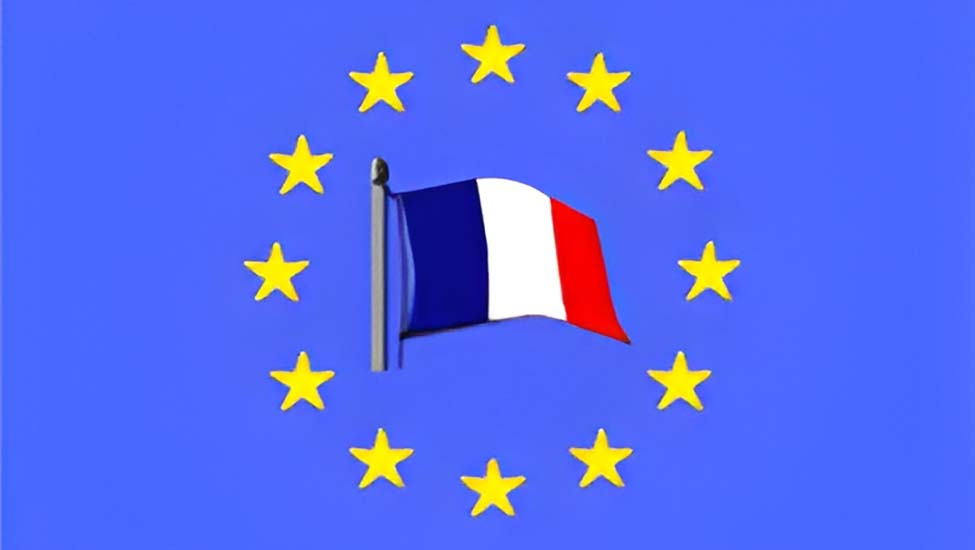The Newsletter n°659 — 23 févr. 2015
La Lettre
Olivier Rozenberg
—
23 February 2015
Prokopis Pavlopoulos, new Greek President
23 February 2015

General elections in Estonia on March 1st
23 February 2015
Euro Zone - growth at its highest in 7 months
22 February 2015

Conditional agreement of the Eurogroup on the extension of the assistance plan to Greece
22 February 2015
Humanitarian aid to Sahel and Palestine
23 February 2015

Towards a capital markets union
22 February 2015
Conclusions of the "Economic and Financial Affairs" Council
22 February 2015

European Defence Ministers' Meeting in Riga
22 February 2015
The Council approves an agreement on the landing of fishing captures
22 February 2015
Federica Mogherini at the Washington Summit against Terrorism
23 February 2015

ECB Decisions
22 February 2015

The Commission gives the greenlight to SME financing before the summer
23 February 2015

Meeting between François Hollande and Angela Merkel
22 February 2015

Angela Merkel meets Pope Francis
23 February 2015
Completion of the Franco-Spanish electricity interconnection proejct
22 February 2015

The French National Assembly rejects the motion of censure against the government
22 February 2015

French President's Speech on Nuclear Dissuasion
22 February 2015
Prokopis Pavlopoulos, new Greek President
24 February 2015

Viktor Orban hosts Vladimir Putin
23 February 2015

Hungarian Prime Minister Viktor Orban loses the super-majority
23 February 2015
The EU extends the Frontex mission in the Mediterranean
22 February 2015

Italy: completing reform
23 February 2015
Eva Kopacz hosts Viktor Orban
23 February 2015

Romania: project for fiscal reform
23 February 2015

A report criticises the management of the Ukrainian crisis by the EU and the UK
22 February 2015

£859 million investment in shipbuilding
23 February 2015
IMF Report on Slovenia
23 February 2015

Chiril Gaburici, new Prime Minister of Moldova
22 February 2015

The Security Council calls for a halt to fighting in Debaltseve
23 February 2015

Interview between the French, Ukrainian, Russian Presidents and the German Chancellor
23 February 2015
Agreement to withdraw heavy arms from the front
23 February 2015
1st anniversary of the Maïdan
23 February 2015
Report by Commissioner of Human Rights on France
22 February 2015

Current account surplus in the fourth quarter
22 February 2015

2014 edition of Agricultural Statistics
22 February 2015
"Qu'est-ce que l'Europe?"
23 February 2015

"Union européenne: le défi maritime"
22 February 2015
"Goodbye Poutine"
22 February 2015
European Photography School Open Days
23 February 2015

"Monet, Gauguin, Van Gogh ... Japanese Inspiration" at the Kunsthaus, Zürich
22 February 2015
Vienna Congress, a major event in European history
23 February 2015
Cézanne, Van Gogh, Bonnard, Manguin ...
23 February 2015
Agenda
25th February
Mini-session of the European Parliament in Brussels (Brussels)
1st March
General elections in Estonia ()
2nd and 3rd March
Competitiveness Council (Brussels)
European Women Leading the Way
Should we be concerned about European competitiveness?
The European Space Context (after the ESA Ministerial Council meeting in 2025)
In support of European regulation that is compatible with growth
Democratic resilience in Europe in a polarised world
The Editors of the Newsletter :
Charles de Marcilly, Helen Levy , Guillaume Anglars, Romain Denninger, Flora Dumont,Noémie Rossi, Francesca Tortorella
N°ISSN : 2729-6482
Editor-in-Chief :
Charles de Marcilly
Director of Publication :
Pascale Joannin
Any questions or suggestions?
Contact Us!







